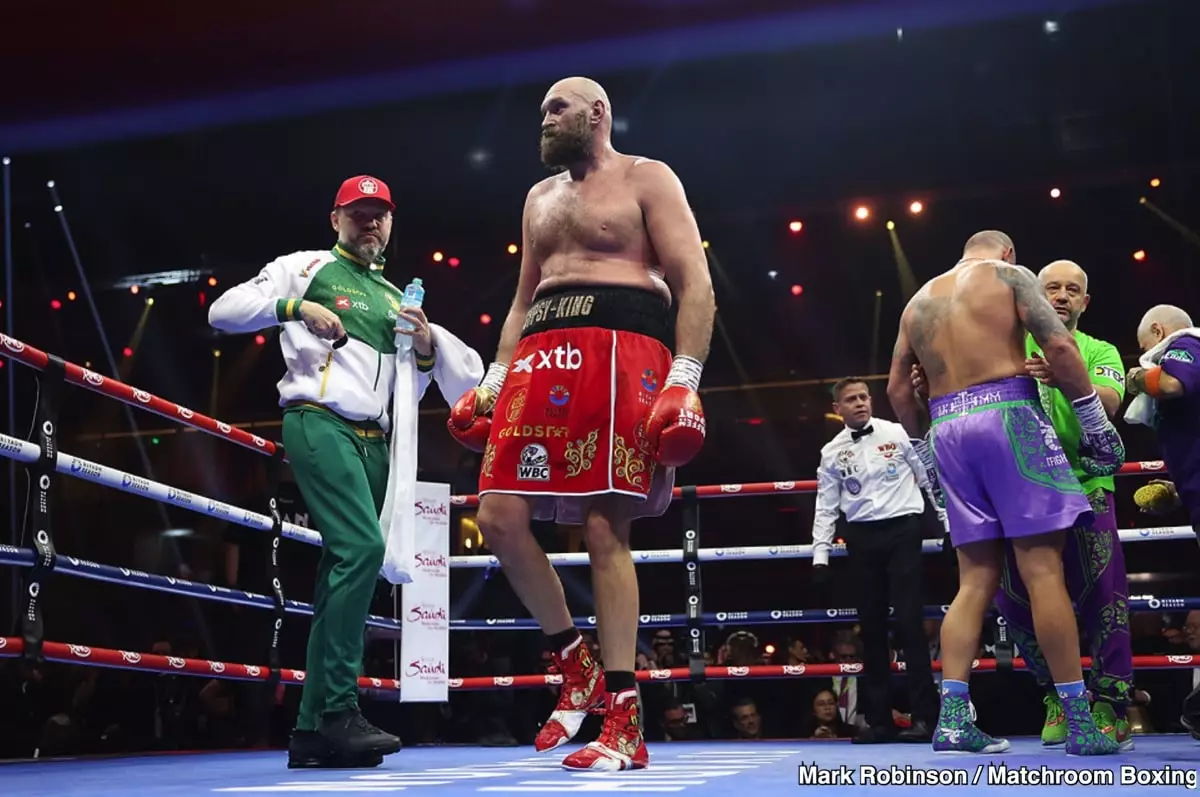Tyson Fury, the larger-than-life boxing heavyweight and polarizing figure, has once again proclaimed his retirement from the sport. The announcement came as a shock to few, as boxing aficionados are well accustomed to his seemingly ceaseless comebacks. His statement was succinct: “I’d like to announce my retirement from boxing. It’s been a blast. God bless everybody, see you on the other side.” With such a proclamation, Fury has added yet another layer to his multifaceted persona—famed for his wit, bravado, and theatrics both inside and outside the ring.
This latest declaration seems to have been met with skepticism by fans and experts alike. After all, this is not the first time Fury has hung up his gloves. Previous retirements have turned out to be ephemeral, fueling the narrative that he may be more performance artist than genuine competitor. One cannot help but wonder if this announcement will hold any water or simply dissolve like the others in the ether of boxing history.
Recent events in Fury’s career may have contributed significantly to his newfound resolve—or so he claims. His fight against Oleksandr Usyk ended in a contentious loss, prompting Fury to assert that he was “robbed.” However, the reality of the bout suggests otherwise; Fury was outpaced and tactically outmaneuvered throughout the fight. The dismissal of the victor’s performance raises questions about Fury’s sportsmanship—a virtue often expected of champions.
His narrative of feeling victimized by bad luck, likened to the infamous 18th-century highwayman Dick Turpin, paints the picture of a man grappling with the complexities of an athlete’s pride. While the losses to Usyk might tarnish his legacy from an analytical perspective, they also shed light on the broader narrative of vulnerability that accompanies being a public figure. Despite the bravado, each defeat chips away at the facade Fury has created, forcing him to reconcile with both his achievements and failures.
A Legacy in Jeopardy?
There was once a time when boxing critics discussed Fury in the same breath as icons like Muhammad Ali and Joe Louis, certainly a testament to his stamina and skill against formidable adversaries like Deontay Wilder and Wladimir Klitschko. Yet, with the recent string of performances—particularly the embarrassing failure to decisively overcome Usyk and the uninspiring matchup against Francis Ngannou—questions arise about whether Fury belongs among the greats or simply excelled in a markedly less competitive era.
The notion that his prime is defined by remarkable victories against recognized opponents is being muttered less frequently now. Fury’s limited activity—38 fights over a decade—stands in stark contrast to the relentless schedules of champions past. Casual fans may romanticize his career arc, overshadowing the lack of consistent, high-stakes matchups that typically define a legacy in boxing.
As Tyson Fury’s tenure teeters on the edge of permanence or return, the boxing community remains divided. There are those supporters who celebrate the flamboyant personality, bringing excitement and theatricality to a sport often mired in controversy. However, many harbor disdain for a fighter they feel lacks integrity in both his messaging and conduct within the ring.
The complex relationship between Fury and the fanbase extends beyond mere statistics or fight records. Critics argue that his behavior often demonstrates a disinterest in fans’ expectations and experiences, suggesting that Fury may prioritize personal gain over the sport’s nobility. Whether applauding or lamenting his retirement, it is clear that Tyson Fury has firmly left his mark on boxing, but will he emerge again to redefine it or fade quietly into the annals of sports history?
Only time will tell whether the “Gypsy King” has finally abdicated his throne or whether this is merely another act in the ongoing drama of his storied career.


Leave a Reply